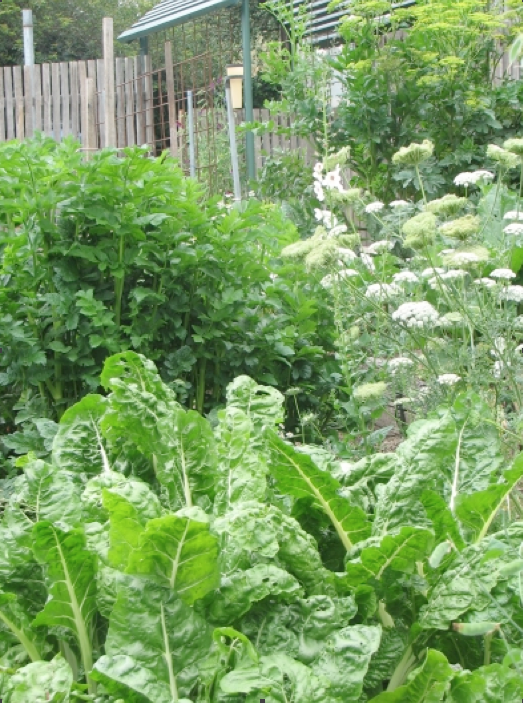KEEPING VEGETABLES HEALTHY
By Graeme Davis

When we grow vegetables at home many of us do so for one of two reasons:
- The challenge of growing it yourself, and
- You know what it has on it – what if any chemicals etc.
So how do we keep the plants healthy and ourselves healthy?
There are a number of things we can do that, combined, can help.
- A healthy soil
- Crop rotation
- Grow the plants when they want to grow
- Encourage natural predators
- Spray only with care
A healthy soil relies on a good supply of organic matter. Compost, aged manures and regular mulching all make a positive contribution. A green manure crop every few years can also add considerably to the organic content of the soil increasing fertility.
Fertiliser is a double edged sword and should be used with care. It can add to the chemical fertility of the soil but it can have negative impacts on soil flora and can add unwanted things such as heavy metals to the soil. Use fertiliser with care and read the label.
Some products can improve the health of the soil, making nutrients available to the plant. Seaweed based products can work on this principle. In addition there are now products that are specifically designed to add to the soil microorganisms and these may be of value, particularly in heavily worked soils.
Crop rotation helps with both maintaining a healthy soil and breaking the cycle for some pests and diseases. Grow plants from different families in each area each year and, if possible, give at least a couple of years between crops from the same family. To achieve crop rotation you need to think careful what you are going to grow where each year.
Growing plants when they want to grow will give better crops and healthier plants. For some plants they will naturally get particular health problems at some times of the year or as they get older (eg cucumbers). Rather than fighting the disease, grow a succession of plants or try to avoid the problem times.
Encouraging natural predators sounds a simple idea but it takes a bit of thought. A few simple things can help:
- Grow a mixture of plants
- If you want something that eats something else you need a few of the pest first so do not try to eliminate them – this is about control not elimination
- Have some pollen and nectar producing plants – some of the predators feed on these at some stages of their life cycle eg lacewings
Critical to all of this is, if you are going to spray, spray with care.
Sometimes you might decide you need to spray. Perhaps, early in the season, you might get a mass explosion of a pest and you think the predators need a hand. Or perhaps it is to control a fungus disease. For whatever reason be very careful what and when you spray. For your own health read and follow the instructions. And for the health of your soil and natural predators pick your sprays with care. Organic sprays are based on nature but they can be very poisonous to both humans and friendly insects. Others are relatively safe. Do some research before you spray – a lot of the time you probably do not really need to!





